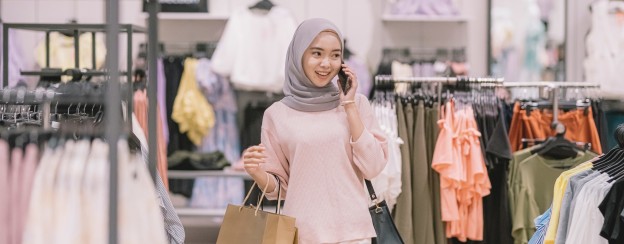In the middle of this year, Jakpat distributed a survey to nearly 5000 respondents throughout Indonesia regarding daily healthy habits and also the desire to lose weight. The results of this survey are then summarized in a report entitled “Body Slimming and Weight Loss Trends”. This report is the first of the 2023 Beauty Trends Report Series that will be published by Jakpat in 2023. This first report is focused on the goals of people living a healthy lifestyle, especially their intention to lose weight.
Some daily healthy habits carried out by the respondents include trying to get enough sleep, reducing sweet foods and drinks, avoiding carbohydrate consumption, and doing regular exercise. As a result, 1 in 5 people do these daily healthy habits with the aim of losing weight. Interestingly, more than 20% started this program within the last 3-6 months and 39% started within the last 1-3 months. That is, most of them are just starting a weight loss program in 2023.
Diet to Feel More Confident
According to Aska Primardi, Head of Research Jakpat, individuals who are running a weight loss program actually already have a clear vision or goal, which is to make the body condition healthier and more energized. Most of them also want to increase confidence. “It’s just that when digging further about the diet program they are implementing, it is found that more than half of the people who do this program run it without following the instructions and advice available,” he added.
From the survey results, it was found that less than half of respondents who were dieting chose to follow certain types of diets, such as the Mayo Diet, Ketogenic Diet, intermittent fasting, or OCD Diet popularized by one of Indonesia’s public figures. While the rest prefer to do a diet that may be just to reduce the consumption of some types of food and maintain a diet according to their individual preferences. Aska also added, “Most of them run programs which don’t really have a clear direction. So that finally their diet program runs less optimally. This is indicated by the fact that 57% of program participants feel that this program is not an easy thing to implement. They find it difficult to reduce portions of their favorite foods, and also have difficulty in carrying out physical activity or exercise.”
Help from Weight Loss Products
Most of the people who run this weight loss program find it difficult. However, 47% of respondents feel the support from the closest people makes the diet program feel lighter or easier. 29% also claimed to get help from health practitioners such as doctors, nutritionists, fitness instructors or personal trainers, until consultants at beauty clinics.
“Following up on this fact, it can be considered the existence of a support system from the surrounding environment to make them able to carry out diet programs that are easy, fun, and also effective in achieving diet goals, especially weight loss. Manufacturers of healthy diet products can invite them to join a program, in which there is a target of weight loss within a certain period of time. Where this program is carried out in a pleasant situation (for example, you can still consume favorite foods with certain terms and conditions), and the important thing is being done together,” said Aska.
The survey results do show that more than half of people who go on a diet use products and treatments that can help them get the ideal weight they want. Some of the products used include weight loss supplements (in the form of drinks and medicines), creams, lotions, and gels that can help burn fat and tighten the skin; up to slimming corsets. While the treatment carried out also varies, ranging from injections of vitamins, nutrients, and other ingredients that affect weight loss; up to liposuction. Those who consume and perform these treatments feel that these products are quite beneficial and helpful to the program they are currently undergoing.
Get the details on our report here.





